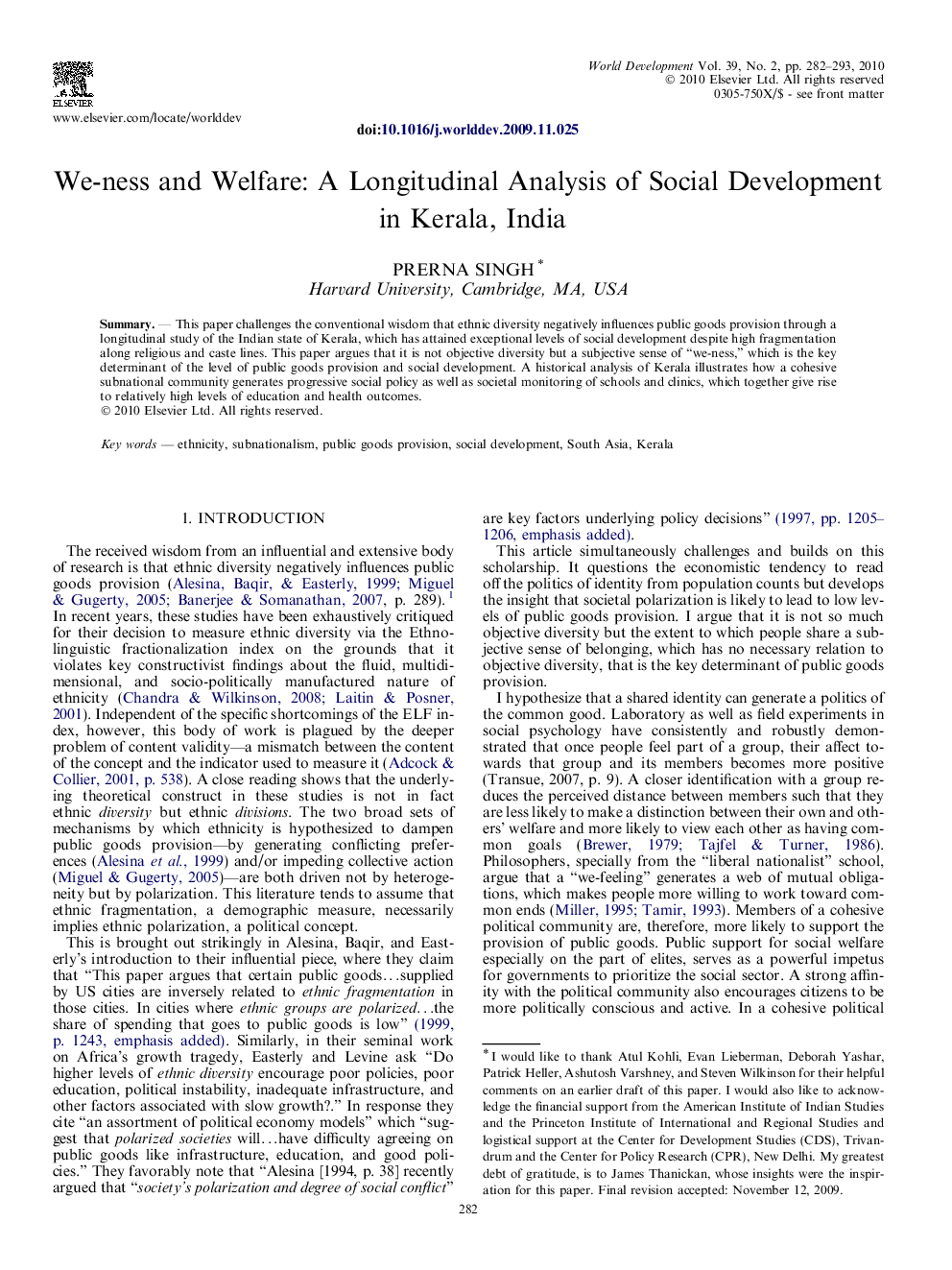| Article ID | Journal | Published Year | Pages | File Type |
|---|---|---|---|---|
| 990908 | World Development | 2011 | 12 Pages |
Abstract
SummaryThis paper challenges the conventional wisdom that ethnic diversity negatively influences public goods provision through a longitudinal study of the Indian state of Kerala, which has attained exceptional levels of social development despite high fragmentation along religious and caste lines. This paper argues that it is not objective diversity but a subjective sense of “we-ness,” which is the key determinant of the level of public goods provision and social development. A historical analysis of Kerala illustrates how a cohesive subnational community generates progressive social policy as well as societal monitoring of schools and clinics, which together give rise to relatively high levels of education and health outcomes.
Related Topics
Social Sciences and Humanities
Economics, Econometrics and Finance
Economics and Econometrics
Authors
Prerna Singh,
